Iran’s FM To Meet His Counterpart In Moscow Next Week
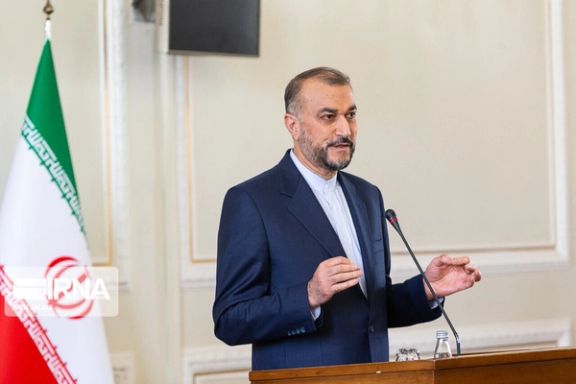
Iran's Foreign Minister Hossein Amir-Abdollahian will visit Moscow next week to meet his Russian counterpart Sergei Lavrov, the Russian Foreign Ministry said on Thursday.

Iran's Foreign Minister Hossein Amir-Abdollahian will visit Moscow next week to meet his Russian counterpart Sergei Lavrov, the Russian Foreign Ministry said on Thursday.
The visit was announced shortly after a phone call between the two countries' presidents.
Russian Foreign Ministry Spokeswoman Maria Zakharova said at a briefing that the two sides will continue to exchange views on several issues, including Iran nuclear deal known as the JCPOA.
“On January 17, Russian Foreign Minister Sergey Lavrov will hold talks with his Iranian counterpart, who will be in Moscow on this day on a working visit. During the talks, the sides are expected to continue an interested exchange of views on a number of topical international and regional topics, including the situation around the JCPOA on the Iranian nuclear deal, and interaction between the two countries at international platforms, including the UN, the SCO, the situation in Syria, Afghanistan, the Caucasus Region and the Caspian issue,” TASS quoted Zakharova as saying.
“There are plans to discuss the bilateral agenda, primarily its trade and economic component in the context of the implementation of key joint projects in energy, transport and other sectors, including taking into account the transition to the final phase of the negotiation process to conclude a full-fledged agreement on a free-trade zone between the EAEU and Iran,” she underlined.
Military ties have expanded between the two countries since the start of the Ukraine war, with Tehran supplying kamikaze drones to Moscow to use in its invasion.
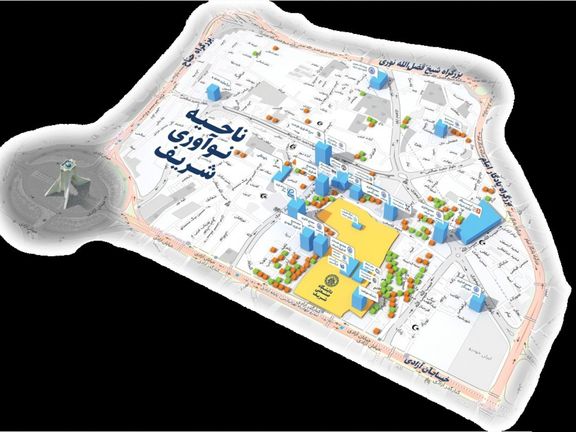
Iran's government has established an office to boost science and technology companies, while it has been disrupting access to the Internet, harming the sector.
An article published by Aftab News in Tehran on December 10 shed some light on some of the activities of the center, which received a handsome budget by Iranian standards after Supreme Leader Ali Khamenei last year called on officials to promote science-based companies.
Usually, Khamenei hears something from his advisors and issues some general and vague instructions to the country’s authorities to strengthen an industry or a certain sector of the economy. Such remarks are then interpreted as unquestionable orders and officials or factions start competing for a piece of the budget. Promoting knowledge-based firms and start-ups is among these contentious issues.
While the achievements of traditional government departments are more measurable, knowledge-based outfits have no touchstone to be measured against because such activities are new for the bureaucracy and authorities do not clearly know what to expect from them.
The actions of the Presidential Office of Science and Technology with a budget of nearly 30,000 billion rials (about $7.5 million in today’s exchange rates - much more last year) and numerous credit lines, is not out in the open and subject to scrutiny for the public, unlike for instance the ministries of energy, health or education. Therefore, few people are aware of how such an astronomical budget in rials is spent.
Since Khamenei included the adjective “knowledge-based” in the motto of the current Iranian year (which started March 21), the most important thing that occurred is that many companies redesigned or reintroduced themselves as such to take advantage of loans and incentives available from the government.
According to a UNESCO report, by 2020, 49 innovation accelerators had been established in Iran with private equity and 113 innovation centers had been set up in partnership with science parks and major universities.
According to Aftab News, Vice President for Science and Technology Rouhollah Dehghani Firouzabadi has recently toured Sharif Science and Technology Park, where it is supposed to be housing nearly 600 companies, 19 accelerators, 15 investment funds, and 10 innovation centers. But the situation is not like the start-up atmosphere at all. Instead, there are a lot of empty halls with many computers and no operators. The hub, which was boastfully presented as the beating heart of Tehran in the field of technology and innovation ecosystem, looks like an abandoned and bankrupt business center.
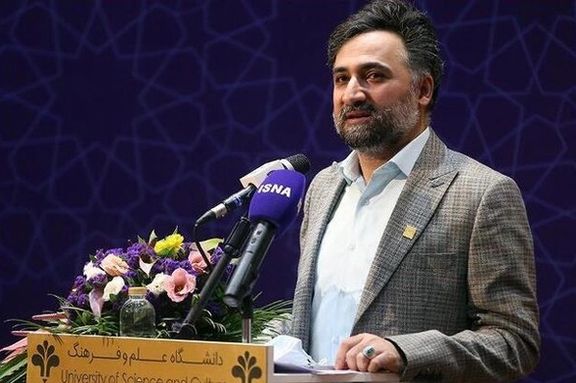
Firouzabadi, appointed in September, said the country’s problems will be resolved if decision-makers are chosen from among the scientific elite, adding that “I believe I need to delegate powers to managers because a specialized manager will be more knowledgeable about his field than I am.”
Currently, more than 7,900 knowledge-based companies are registered but, according to people in the sector, most of them are not active or are doing something different from what they were supposed to do.
The presidential outfit, which has recently rebranded itself with a longer title to include science-based economy, has even outsourced its most important job to companies from the private sector. Its most important task used to be identifying whether a company is science-based or not, and now this task is carried out by contractors.
Companies that seek to apply to be registered as knowledge-based – to be able to use its advantages -- should be evaluated in terms of product and corporate frameworks. Now, there are a large number of evaluators and brokers from the private sector. It is not clear how such contractors are selected or if they are connected to government insiders. Such a system is prone to nepotism and corruption and there is no supervision over it.
One of the noteworthy activities of the center is organizing the so-called science and technology tours to countries like Turkey and France. While many start-ups and tech companies as well as people active in such fields are emigrating in the last 18 months due to inflationary stagnation and widespread poverty in Iran, such luxurious tours aimed at “connecting the researchers of the Islamic world" seem suspicious, says Aftab News.
Another way that the center is spending its extravagant budget is holding online workshops and seminars, which are usually held with only a handful of participants because the instructors are chosen based on their close connections to the authorities and not based on their expertise.
There is also an inherent contradiction in promoting new technologies, while at the same time restricting internet access to the public to control the flow of information about the current wave of antigovernment protests.
On Monday, Mojtaba Tavangar, the chairman of the Digital Economy Committee of the parliament, wrote to Raisi asking him to restore access to the Internet and to establish a fund to compensate for the damage caused to businesses. New figures show that due to extensive internet and social network restrictions, 20 percent of people in Iran have lost their online jobs in the past four months.
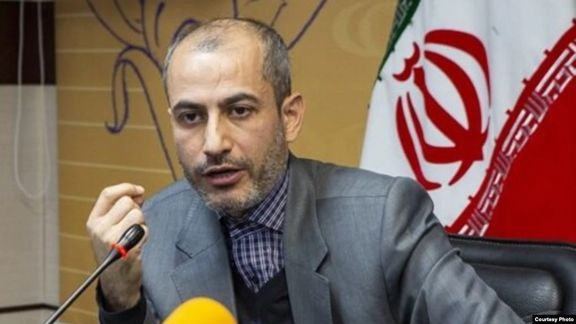
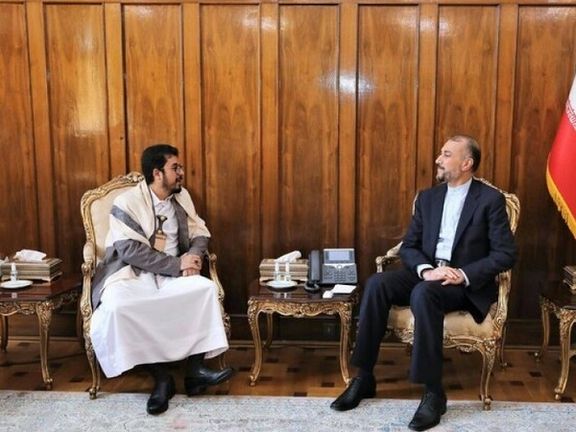
An ultraconservative supporter of Iran's President Ebrahim Raisi has criticized his foreign policy for lack of agility, as the country faces more isolation.
Former lawmaker Hossein Naghavi-Hosseini added in an interview with Nameh News website in Tehran that Iran's foreign policy is passive and lacks dynamism. He stressed that the foreign ministry is absent in the Persian Gulf area. “There are many potentials for cooperation in this region, but the Iranian foreign ministry lacks the agility and dynamism to get positively involved in the region."
There are key reasons why Tehran suffers from a sense of isolation. Long negotiations with the West to revive the 2015 nuclear deal known as the JCPOA were suspended in September as Iran presented demands, which Washington rejected. This was followed by Tehran’s brutal suppression of protests and evidence that it was supplying kamikaze drones to Russia used against Ukraine. The West, and especially Europe, have reacted with disdain and adopted new sanctions against Tehran.
At the same time, Iran’s financial situation has deteriorated after years of US sanctions and its currency has dropped to unprecedented lows. All these have led to a mood of pessimism among regime insiders, and no prospect of a quick remedy.
Naghavi-Hosseini said in the interview that the ongoing protests in Iran have adversely affected the West's willingness to continue nuclear negotiations with Iran as social media activists portrayed Iran's situation in a way that the Islamic Republic is on the verge of collapse and the West should wait for the establishment of a new regime before resuming the talks.
Nevertheless, he claimed that "although Westerners are currently not keen to continue the talks, in fact, they need the JCPOA, and they have to come to terms with Iran in the long run."
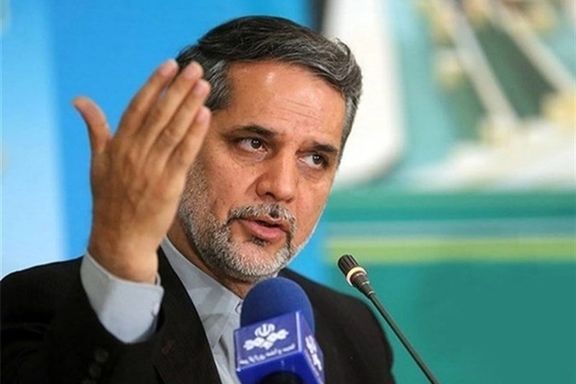
According to Nameh News, Raisi who came to power with promises of reviving the JCPOA, advancing the economy despite sanctions, implementing closer ties with China and Russia, and improving Iran's relations with its neighbors, has accomplished none of these in 18 months.
The Western parties in the JCPOA, the United States, United Kingdom, France and Germany say reviving the nuclear deal is not their focus now, meaning that US sanctions will continue.
China's President Xi Jinping signed a statement during a recent visit to Saudi Arabia, supporting Arab claims to three islands in the Persian Gulf, putting in doubt Tehran's 25-year cooperation contract with Beijing, and most recently Iraqi officials have been using the term Arabian Gulf rather than Persian Gulf to undermine Iran's long-standing characterization of the waterway.
In another development, international relations expert Mehdi Motaharnia told Rouydad24 website that the Iranian government is duty-bound to continue its "revolutionary" rhetoric and cannot make an agreement with America."
He said although Iranian and US officials use the same words such as "mutual respect, obligations, and commitments," when talking about the JCPOA, what they mean by these words are different. At the same time, both of them accuse each other of "government-sponsored terrorism."
"While the United States' rhetoric is based on liberal democracy and capitalism, the Islamic Republic of Iran's rhetoric is based on the ideology of Shiite Islam," Motaharnia said. At times both of them talk about returning to the JCPOA, but what they mean are two different things. This difference existed since 2015 when the nuclear deal was made.
"In other words, the United States is aware that the Islamic Republic will never give up the ideological aspect of its foreign policy," Motaharnia added.
Naghavi-Hosseini added that at the same "Iran is seriously following an approach to strengthen its ties with China and Russia, despite some hiccups.
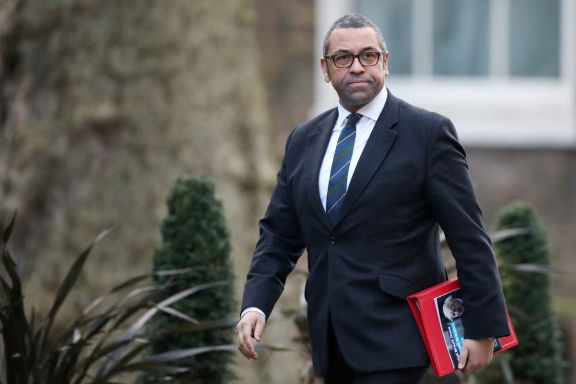
The UK foreign secretary has called on the Iranian regime to stop the execution of a British-Iranian dual national accused and convicted in secrecy of spying for MI6.
In a tweet Wednesday, James Cleverly said the Islamic Republic “must halt the execution of British-Iranian national Alireza Akbari and immediately release him.”
He further called the move a “politically motivated act by a barbaric regime that has total disregard for human life.”
Akbari had been deputy defense minister under the reformist President Mohammad Khatami, from 1997 to 2005. He was also close to Ali Shamkhani, the secretary of the Supreme National Security Council of Iran.
He was an advocate for the Iran nuclear deal known as the JCPOA that was eventually signed in 2015 with world powers.
A source close to the Islamic Revolutionary Guard Corps has provided documents to Iran International showing that the death sentence for Alireza Akbari is an move to weaken Shamkhani’s position in the clerical regime.
It seems that President Ebrahim Raisi, Intelligence Minister Esmail Khatib and Interior Minister Ahmed Vahidi are exerting pressure to remove Ali Shamkhani from the post.
Iranian state media reported Wednesday that Alireza Akbari has been sentenced to death for allegedly spying for MI6.
In a statement published by Iran's Intelligence Ministry, Akbari was described as "one of the most important infiltrators in the country's sensitive and strategic centers".
He was detained more than three years ago and has been in the notorious Evin prison in Tehran since then.
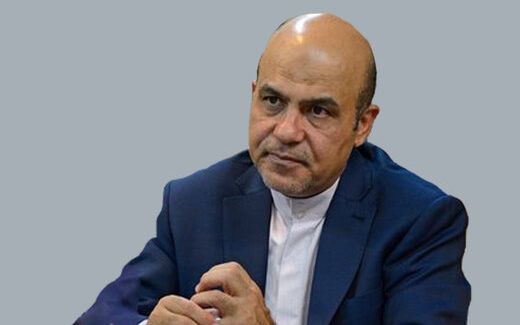
A former Iranian defense ministry official, who holds dual Iranian-British citizenship, has been sentenced to death on charges of spying for the UK.
Iranian state media reported Wednesday that Alireza Akbari has been sentenced to death for allegedly spying for MI6.
In a statement published by Iran's Intelligence Ministry, Akbari was described as "one of the most important infiltrators of the country's sensitive and strategic centers".
He was detained more than three years ago and has been in the notorious Evin prison in Tehran since then.
Akbari had been deputy defense minister under the reformist President Mohammad Khatami, from 1997 to 2005. He was also close to Ali Shamkhani, the secretary of the Supreme National Security Council of Iran.
He was an advocate for the Iran nuclear deal known as the JCPOA that was eventually signed in 2015 with world powers.
Britain's Foreign Office has urged the Islamic Republic to immediately release the dual national.
However, Akbari's wife Maryam said an official asked her to visit her husband in jail for a 'final meeting' before his execution.
Reports say he has been moved to solitary confinement, indicating that his execution is imminent.
However, no details have provided about his specific charges and court proceedings.
"Our priority is securing his immediate release and we have reiterated our request for urgent consular access," a UK Foreign Office spokesperson said.
Nournews, which is affiliated to the country's top security agency reported that Akbari's death sentence has been upheld by Iran's Supreme Court.

The first session of the court of appeal for a former Iranian official guilty of war crimes in connection with mass executions in Iran in 1988 was held Wednesday in Stockholm.
Hamid Nouri, 61, received a life sentence last July for his leading role in the massacre of large numbers of jailed opposition members.
Nouri’s life sentence by the primary court, can keep him in prison for 25 years according to Swedish law 25 years in prison in Sweden. He has appealed the court’s verdict.
According to Iran International’s correspondent from the court of appeal, during the Wednesday session, Nouri constantly complained about not being transferred to the general ward and his lack of access to ophthalmological examination.
However, the judge said this issue has nothing to do with the court and should be discussed with the prison authorities by Nouri's lawyers.
Earlier, Majid Nouri, his son, had complained about his father's glasses and had cited the interruption of serving him tea as examples of torture.
This comes while Nouri’s colleagues in Iran execute innocent young protesters for setting fire to a trash bin.
Sweden arrested Nouri upon his arrival at Stockholm Airport in 2019 and in 2021 put him on trial over the mass execution and torture of prisoners at Gohardasht Prison in July and August 1988.
Most victims were linked to the opposition group Mujahedin-e Khalq Organization (MEK) and also other leftist organizations.